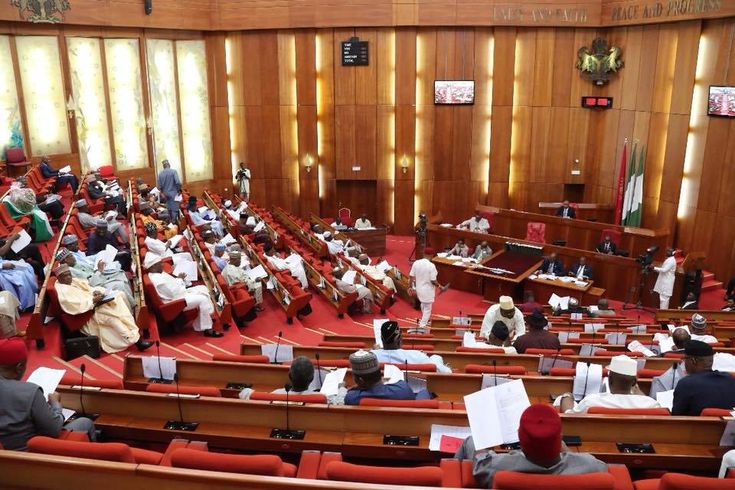The Nigerian Senate is considering a major legislative proposal that could relocate the venue of future presidential inaugurations from Eagle Square to the National Assembly Complex in Abuja. In addition, the Senate is pushing to institutionalize an annual presidential address on June 12, in recognition of the day’s deep historical and democratic significance.
The Senate Leader, Opeyemi Bamidele, revealed this during a press briefing on Tuesday. He noted that the planned bill will formalize the President’s speech to the nation on Democracy Day and potentially alter the traditional inauguration venue for future administrations.
“We are hoping to bring a bill soon to institutionalize the President’s address on June 12 because of its historical importance,” Bamidele stated.
National Assembly as the New Inauguration Venue
Bamidele explained that part of the bill would include a provision to make the National Assembly Complex the official venue for the swearing-in ceremony of the President and Commander-in-Chief.
“We are hoping, in that bill, to ensure that the swearing-in ceremony of the next President—whom we believe is President Bola Ahmed Tinubu—will be held within the arcade of the National Assembly,” he said.
This proposal, if passed, would mark a significant shift from the longstanding tradition of holding presidential inaugurations at Eagle Square in Abuja.
Focus on 2024 Budget Extension
In addition to the inauguration and June 12 proposals, the Senate Leader noted that the legislative arm is also considering an extension of the 2024 capital expenditure timeline, ensuring thorough execution of the national budget.
“We will further extend the capital expenditure timeline while ensuring that the 2025 budget is fully implemented,” Bamidele added.
Progress on Constitutional Review
Bamidele, who also serves as Vice Chairman of the Constitution Review Committee, acknowledged the slow pace of constitutional amendments but assured Nigerians that significant progress has been made. He stated that zonal public hearings would be held soon as part of the final stages.
“We’ve completed almost 70% of the work. Our goal is to finish the constitutional amendment before the end of the third legislative year,” he assured.
Why June 12 Matters in Nigerian Democracy
June 12 remains one of the most significant dates in Nigeria’s democratic journey. It commemorates the 1993 presidential election, widely believed to have been won by MKO Abiola, but controversially annulled by then-military leader General Ibrahim Babangida. The annulment led to mass protests and a national crisis.
HEED: Follow us on Instagram or any other social media platform and get the most reliable news directly in your favourite app!
In 2018, President Muhammadu Buhari officially declared June 12 as Nigeria’s Democracy Day, replacing May 29, to honor Abiola and promote the ideals of free and fair elections.
In a historic admission, Babangida confirmed in his February 2025 memoir that MKO Abiola indeed won the 1993 election, offering what many view as long-overdue validation of Abiola’s legacy.
Conclusion
The Senate’s proposed legislation aims to deepen Nigeria’s democratic culture by aligning the President’s annual Democracy Day address with the National Assembly—a symbol of representative governance. If passed, the bill could reshape future presidential inaugurations and reinforce the relevance of June 12 in Nigeria’s political history.
NaijaBlogDaily# is visible on all social media platforms, and we bring you the latest Nigerian news on politics and economy, entertainment, and celebrity updates, including sports across Nigeria and beyond…
Keep visiting and following up with us on any social media platform you are using to keep you updated 💯
Remember (information brings knowledge and power).
STAY TUNED!!!



